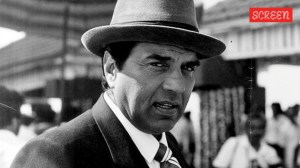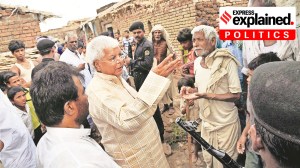New insight into India-loving ‘racist’ Enoch Powell
A new book tries to unravel enigma called Powell who achieved infamy with 'Rivers of blood' speech.
A new book has tried to unravel an enigma called Enoch Powell,the late Conservative leader who was a scholar,statesman,arch-rebel,philosopher and poet,but achieved infamy with his famous ‘Rivers of blood’ speech that added ‘racist’ to his many descriptions.
Best known for his emotive 1968 ‘Rivers of Blood’ speech delivered in Birmingham,in which he warned of the effects of mass immigration,Powell (1912-1998) saw his political career blighted by the speech,dismissed from the Conservative party,and for most of his later life,was a political untouchable.
An India-lover who was posted in Delhi for Military Intelligence in 1945,Powell was also a linguist,learnt Urdu in India,but returned to London to become an outspoken critic of immigration from India and the Commonwealth as he saw his constituency,Wolverhampton,transformed by waves of immigrants.
Nearly 45 years after the infamous ‘Rivers of blood’ speech branded him a racist and altered Britain’s discourse on racism,his wife has sought to defend him by citing his friendship with India’s first army chief,Gen K M Cariappa.
Pamela Powell,a researcher in the Conservative party he married in 1952,has spoken for the first time about the speech in a detailed interview in a collection of essays published to mark Powell’s 100th birth anniversary on June 16.
Pamela cites Gen Cariappa when asked to respond to the allegation that her husband was a racist in the book titled ‘Enoch at 100′ (Biteback),edited by Greville Howard,and talks at length about other aspects about Powell,who once termed the relationship between India and Britain as a shared hallucination.
To the accusation that Enoch was a racist and didn’t like foreigners,Pamela says: Well,I always think of his friend General Cariappa,when people say that.
Nowadays,what I’m about to say sounds completely normal and unexceptional,but at that time in India,it certainly wasn’t.
Enoch was secretary of the All Indian Army Committee,and he and the general were going around most of India – this was after the war,after August 1945 until he was demobbed in 1946,I think.
They were stopping at various places to take note of whatever was going on in the Indian Army in those days.
They stopped at the Byculla Club,in Pune (sic),and the club said that the Indian gentleman,who was General Cariappa,couldn’t come in because they didn’t have anybody except white people here.
So Enoch said,’Take my baggage out of this club,I am going to stay with my friend General Cariappa’,and he did.
One would expect nothing else today,but in those days in India the club’s rules were normal,accepted and to be obeyed. Subsequently,he came to see us in England and we had him to a meal at home and he had us to whatever club he was staying at in England. Very charming man.
In the infamous 1968 speech,warning of the effects of mass immigration,Powell ended by making a classical allusion to a line from ancient Roman poet Virgil’s poem,Aeneid: As I look ahead,I am filled with foreboding. Like the Roman,I
seem to see ‘the River Tiber foaming with much blood’
Until the rise of Margaret Thatcher,Powell was considered the most famous politician in Britain,mainly because of the ‘Rivers of Blood’ speech,which also made him a poster boy for extreme right groups such as the British National Party.
Besides the collection of essays and meetings to remember Powell,the British National Party also noted his 100th birth anniversary and presented an analysis of his infamous speech.
The book is described as a critical assessment of the controversial politician’s legacy by political figures and writers,such as Iain Duncan Smith (Works and Pensions Secretary in the David Cameron government),Simon Heffer,Tom Bower,Lord Salisbury,Lord True,Alastair Cook,Andrew Roberts and Ricky Ritchie.



- 01
- 02
- 03
- 04
- 05




























